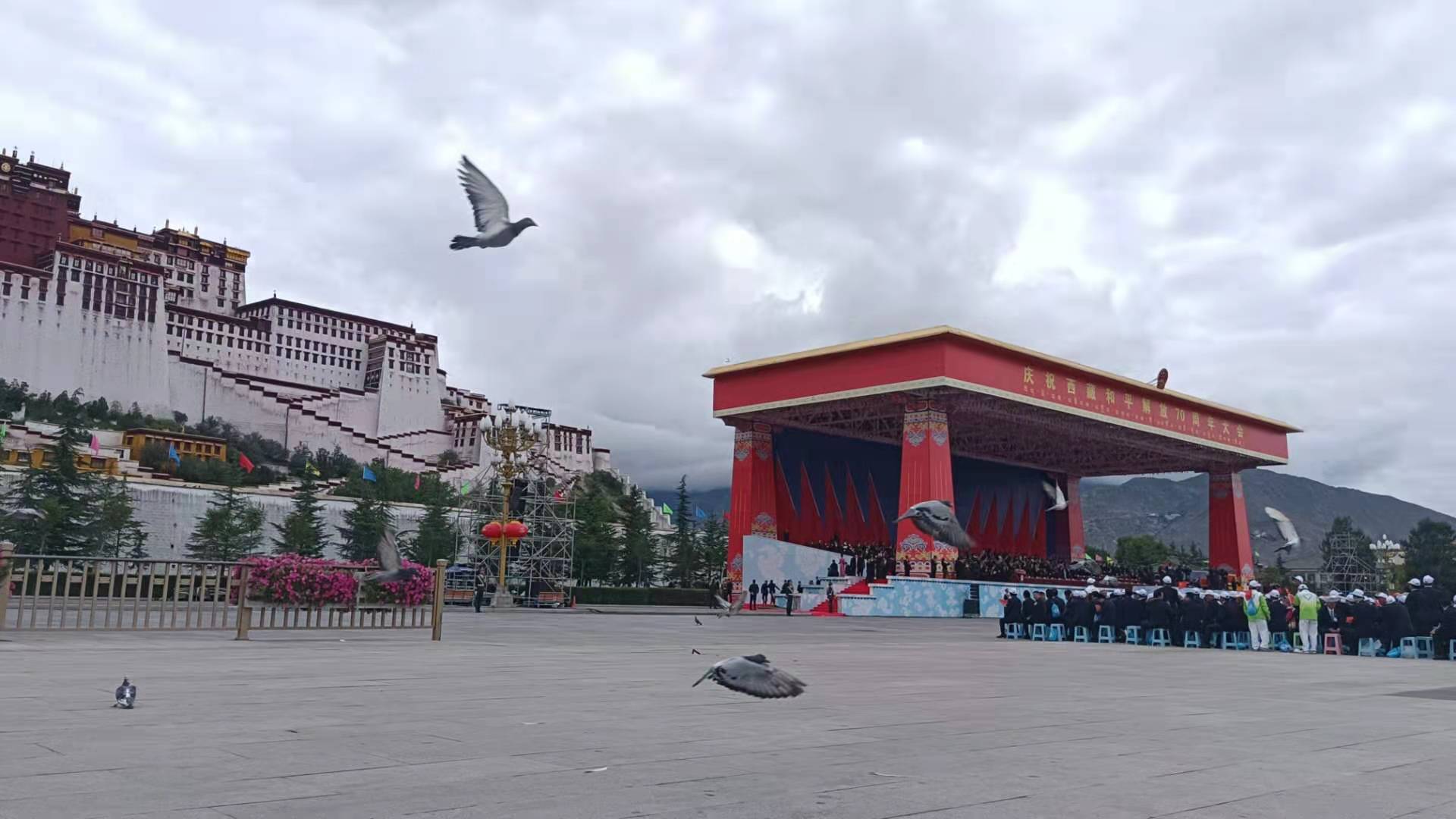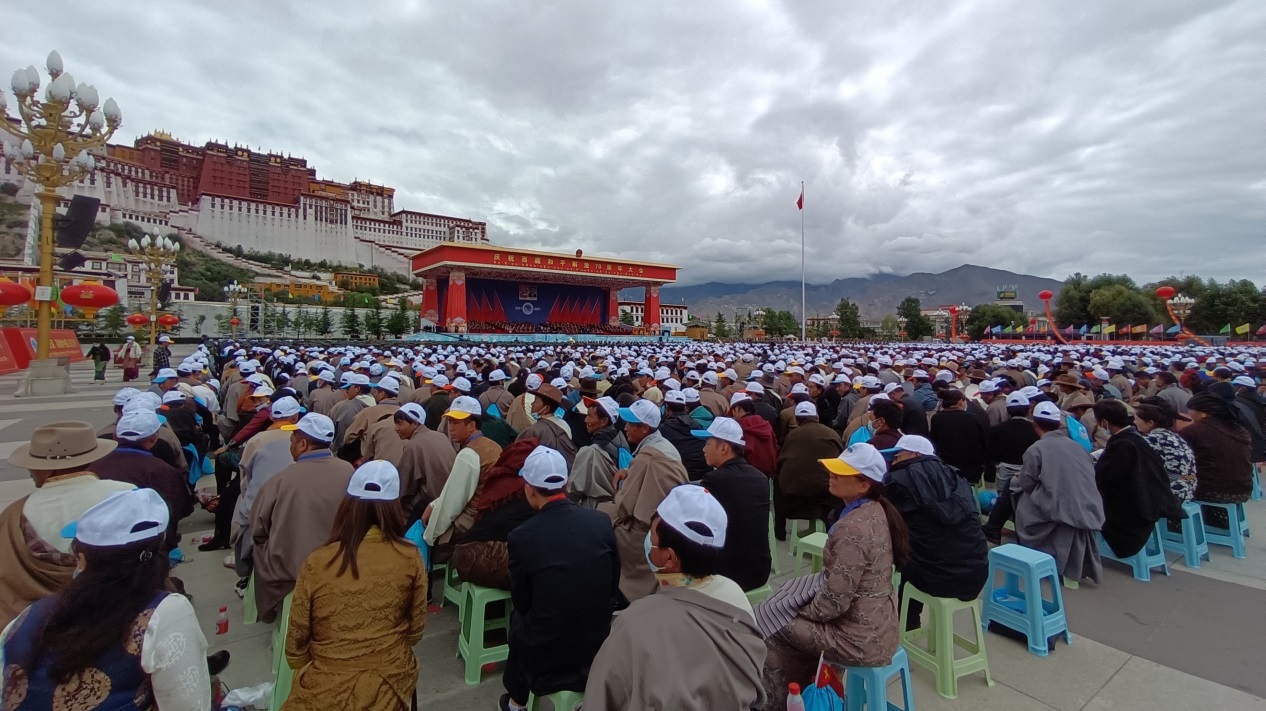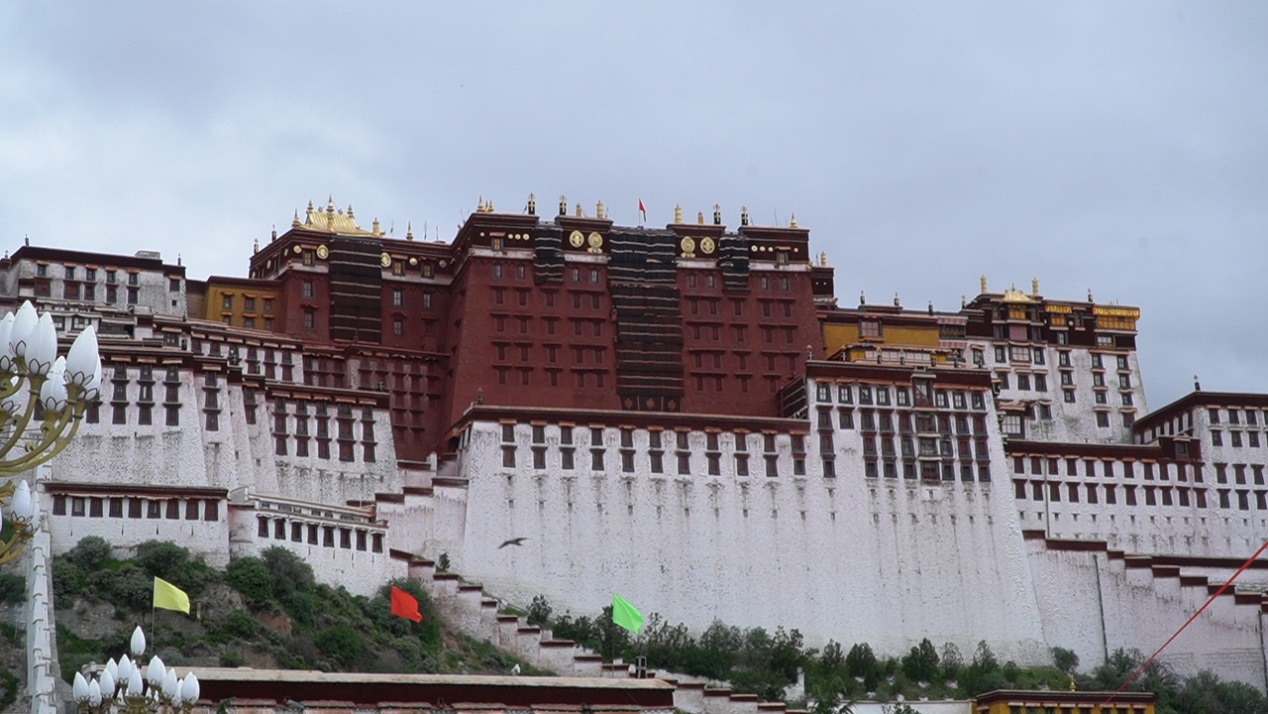02:33

This year marks the 70th anniversary of Tibet's peaceful liberation. A grand ceremony was held on Thursday in front of the Potala Palace in Lhasa, the iconic landmark of the autonomous region in China.
Following a national flag raising ceremony and folk performance, several commemorative plaques and banners were presented to local officials by a central government delegation to Tibet to mark the occasion.

The ceremony held in Lhasa, southwest China's Tibet Autonomous Region, August 19, 2021. /CGTN
The ceremony held in Lhasa, southwest China's Tibet Autonomous Region, August 19, 2021. /CGTN
In the old Tibet, barbarous feudal serfdom was practiced. Over 90 percent of Tibetans struggled for subsistence, and up to 95 percent were illiterate.
Seven decades ago, the "17-Article Agreement" signed by the central government and Tibet's local government re-established China's sovereignty in the region, and cleared the path of ending serfdom and advancing Tibetan society.
Wang Yang, chairman of the Chinese People's Political Consultative Conference (CPPCC) National Committee, is leading the central government delegation to Tibet. In his speech, he called the peaceful liberation a "historic transition with epoch-making significance for Tibet."
"Since then, Tibet has embarked on a path from darkness to brightness, from backwardness to progress, from poverty to prosperity, from autocracy to democracy, and from closeness to openness," said Wang.

The Potala Palace is an iconic landmark in Lhasa, capital of the Tibet Autonomous Region. /CFP
The Potala Palace is an iconic landmark in Lhasa, capital of the Tibet Autonomous Region. /CFP
Official data shows that Tibet's regional GDP rocketed to nearly $30 billion in 2020 – over 300 times higher than 70 years ago. By the end of 2019, all 628,000 registered impoverished people in the region had shaken off extreme poverty, which is considered a historic milestone, given the challenging environment due to the geography of the plateau.
"Last year, the per capita disposable income of rural residents was 14,598 yuan ($2,249), an increase of 416 times since 1959," said Wu Yingjie, secretary of the Tibet Autonomous Regional Committee of the Communist Party of China.
"We should build on the success of poverty alleviation and advance rural development in all aspects," Wang added. "We should address each and every issue that is important to people's livelihood, and make sure that people of all ethnic groups enjoy more benefits and happier lives."
Wang also promised that the central government's input in the region and support for the development of Tibet will only increase, not decrease.
Read more: China outlines priorities for Tibet to advance stability, prosperity

